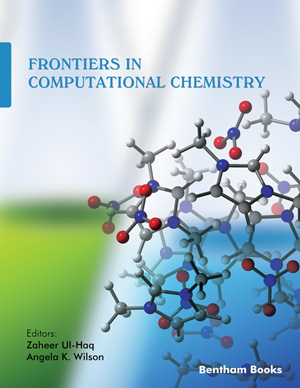Abstract
Protein tyrosine phosphorylation is one of the key mechanisms involved in signal transduction pathways. This modification is regulated by concerted action of protein tyrosine phosphatases and protein tyrosine kinases. Deregulation of either of these key regulators lead to abnormal cellular signaling, which is largely associated with human pathologies including cancer. Although the role of protein tyrosine kinases in cancer is well established, less is known about the involvement of protein tyrosine phosphatases in carcinogenesis and tumor progression. Moreover, several inhibitors targeting protein tyrosine kinases have demonstrated their value in cancer treatment, while interest in protein tyrosine phosphatases as a target for treatment has risen more recently. In this review we describe the progressive efforts and challenges concerning the development of drugs targeting phosphatases as promising novel cancer therapies. We focus on two key regulatory SH2 domain-containing phosphatases, SHP-1 and SHP-2 and one of their substrates, signal regulatory protein alpha. Since SHPs have been linked to many different malignancies, protein tyrosine phosphatases could offer a great spectrum of new, targeted drugs.
Keywords: Protein tyrosine phosphatase, SHP-1, SHP-2, SIRPα, phosphatase inhibitor
Anti-Cancer Agents in Medicinal Chemistry
Title: Role of Tyrosine Phosphatase Inhibitors in Cancer Treatment with Emphasis on SH2 Domain-Containing Tyrosine Phosphatases (SHPs)
Volume: 9 Issue: 2
Author(s): Mahban Irandoust, Timo K. van den Berg, Gertjan J.L. Kaspers and Jacqueline Cloos
Affiliation:
Keywords: Protein tyrosine phosphatase, SHP-1, SHP-2, SIRPα, phosphatase inhibitor
Abstract: Protein tyrosine phosphorylation is one of the key mechanisms involved in signal transduction pathways. This modification is regulated by concerted action of protein tyrosine phosphatases and protein tyrosine kinases. Deregulation of either of these key regulators lead to abnormal cellular signaling, which is largely associated with human pathologies including cancer. Although the role of protein tyrosine kinases in cancer is well established, less is known about the involvement of protein tyrosine phosphatases in carcinogenesis and tumor progression. Moreover, several inhibitors targeting protein tyrosine kinases have demonstrated their value in cancer treatment, while interest in protein tyrosine phosphatases as a target for treatment has risen more recently. In this review we describe the progressive efforts and challenges concerning the development of drugs targeting phosphatases as promising novel cancer therapies. We focus on two key regulatory SH2 domain-containing phosphatases, SHP-1 and SHP-2 and one of their substrates, signal regulatory protein alpha. Since SHPs have been linked to many different malignancies, protein tyrosine phosphatases could offer a great spectrum of new, targeted drugs.
Export Options
About this article
Cite this article as:
Irandoust Mahban, van den Berg K. Timo, Kaspers J.L. Gertjan and Cloos Jacqueline, Role of Tyrosine Phosphatase Inhibitors in Cancer Treatment with Emphasis on SH2 Domain-Containing Tyrosine Phosphatases (SHPs), Anti-Cancer Agents in Medicinal Chemistry 2009; 9 (2) . https://dx.doi.org/10.2174/187152009787313864
| DOI https://dx.doi.org/10.2174/187152009787313864 |
Print ISSN 1871-5206 |
| Publisher Name Bentham Science Publisher |
Online ISSN 1875-5992 |
Call for Papers in Thematic Issues
Induction of cell death in cancer cells by modulating telomerase activity using small molecule drugs
Telomeres are distinctive but short stretches present at the corners of chromosomes and aid in stabilizing chromosomal makeup. Resynthesis of telomeres supported by the activity of reverse transcriptase ribonucleoprotein complex telomerase. There is no any telomerase activity in human somatic cells, but the stem cells and germ cells undergone telomerase ...read more
Role of natural compounds as anti anti-cancer agents
Cancer is considered the leading cause of worldwide mortality, accounting for nearly 10 million deaths in 2022. Cancer outcome can be improved through an appropriate screening and early detection and through an efficient clinical treatment. Chemotherapy remains an important approach in treatment o f several types of cancers, even though ...read more
Signaling and enzymatic modulators in cancer treatment
Cancer accounts for nearly 10 million deaths in 2022 and is considered the leading cause of worldwide mortality. Cancer outcome can be improved through an appropriate screening and early detection and through an efficient clinical treatment. Chemotherapy, radiotherapy and surgery are the most important approach for the treatment of several ...read more
 30
30
- Author Guidelines
- Graphical Abstracts
- Fabricating and Stating False Information
- Research Misconduct
- Post Publication Discussions and Corrections
- Publishing Ethics and Rectitude
- Increase Visibility of Your Article
- Archiving Policies
- Peer Review Workflow
- Order Your Article Before Print
- Promote Your Article
- Manuscript Transfer Facility
- Editorial Policies
- Allegations from Whistleblowers
Related Articles
-
Human Induced Pluripotent Stem Cells for Inherited Cardiovascular Diseases Modeling
Current Stem Cell Research & Therapy Protein Tyrosine Phosphatase SHP-2 as Drug Target
Mini-Reviews in Organic Chemistry Beta-Blockers in Pediatric Hypertrophic Cardiomyopathies
Reviews on Recent Clinical Trials SHP-2 Regulates Growth Factor Dependent Vascular Signalling and Function
Mini-Reviews in Medicinal Chemistry Tissue Engineering Techniques in Cardiac Repair and Disease Modelling
Current Pharmaceutical Design Antibodies for Therapeutic Uses and the Evolution of Biotechniques
Current Medicinal Chemistry Induced Pluripotent Stem Cells and Their Potential for Basic and Clinical Sciences
Current Cardiology Reviews Improved Hepatic Differentiation Strategies for Human Induced Pluripotent Stem Cells
Current Molecular Medicine Induced Pluripotent Stem Cells in Regenerative Medicine and Disease Modeling
Current Stem Cell Research & Therapy Antimicrobial Peptides in Oral Cancer
Current Pharmaceutical Design Inhibitor Binding Sites in the Protein Tyrosine Phosphatase SHP-2
Mini-Reviews in Medicinal Chemistry The Future of Induced Pluripotent Stem Cells for Cardiac Therapy and Drug Development
Current Pharmaceutical Design Medical Treatment of Aortic Aneurysms in Marfan Syndrome and other Heritable Conditions
Current Cardiology Reviews Antimicrobial Peptides Present in Mammalian Skin and Gut are Multifunctional Defence Molecules
Current Pharmaceutical Design Drug Discovery and Protein Tyrosine Phosphatases
Current Medicinal Chemistry Design Potential Selective Inhibitors for Treating Cancer by Targeting the Src Homology 2 (SH2) Domain-Containing Phosphatase 2 (Shp2) with Core Hopping Approach
Protein & Peptide Letters Structure, Function, and Pathogenesis of SHP2 in Developmental Disorders and Tumorigenesis
Current Cancer Drug Targets Crosstalk Between Bioactive Peptide and Intestinal Barrier in Gut Homeostasis
Current Protein & Peptide Science Multitarget Network Strategies to Influence Memory and Forgetting: The Ras/Mapk Pathway as a Novel Option
Mini-Reviews in Medicinal Chemistry Contextualizing the Genes Altered in Bladder Neoplasms in Pediatric and Teen Patients Allows Identifying Two Main Classes of Biological Processes Involved and New Potential Therapeutic Targets
Current Genomics


























